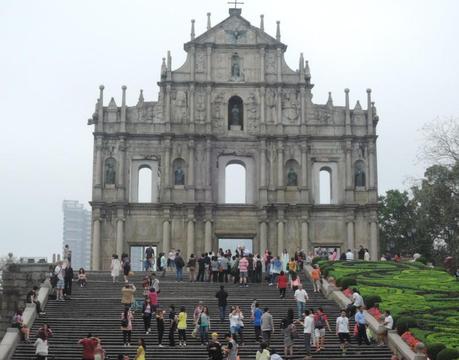
Ruins of San Pablo
A tax heaven and a free port, Macao isn’t just casinos, gold and Bruce Lee movies, but an interesting long history.
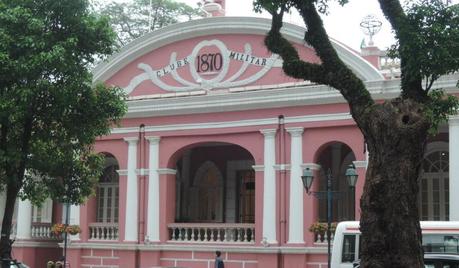
Military Club, in a colonial style building.
Up to right yesterday -so to say- this city was under Portuguese administration. Actually, it was never a proper colony, but for five centuries the Portuguese paid an annual rent to China for establishing a settlement in Macau. However, its autonomy degree varied along the years: at the beginning, traders from Portugal just obtained the right to anchor ships in Macau’s harbours and to carry out trading activities, but around mid XIXth century, as more Portuguese had settled there, an agreement was reached with the Chinese authorities for perpetual occupation and government of Macau by Portugal, well understood that China didn’t resign its sovereignity over the city (which it owned since two thousand years before). And, in this way, Macau has remained under Portuguese administration until december 1999, when China (presumedly) regained its sovereignity, thus being Macau the last European “colony” in Asia.
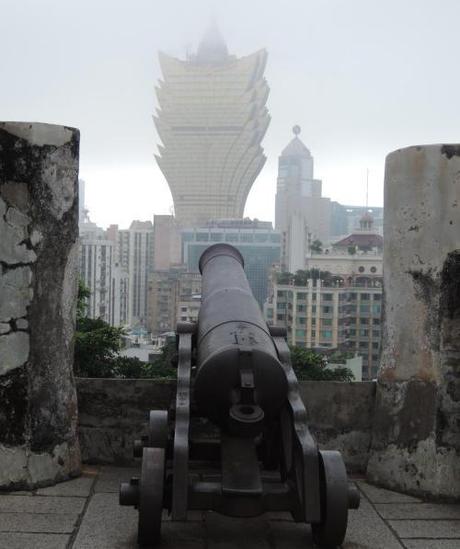
Cannon between battlements of the fortress. In the background the hotel Grand Lisboa, towering the city.
By the way, the Portuguese (or, rather, their negro slaves) defended Macau from the several attacks by the jolly Dutch, who wanted to turn the port, by force, into their posession; but they were always defeated. Of this time a fortress remains, with a battery of cannons in perfect shape.
Nowadays, besides a rich and prosperous city, Macao is a curious mixture of cultures and trades; for instance, Chinese and Portuguese are both official languages, everything being written in both (though I haven’t heard anyone speaking the latter), whereas English turns out to be also a de facto official, because of tourism and the undeniable British influence: alike Hong Kong, traffic rides on the left and electric standards are the same as in the UK; while, despite the official currency being the “pataca”, this is pegged to the Hong Kong dollar at a rate of one to one, and the HKD becomes prevalent in commerce. As to gastronomy, it’s also divided between East and West, this mixture being more evident than in Hong Kong, where the cuisine is mostly Asian.
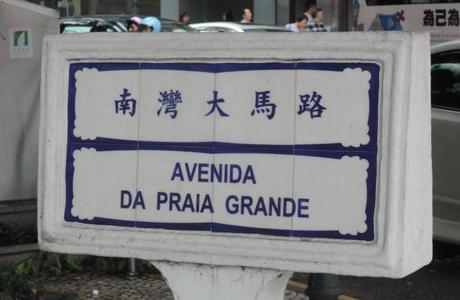
All the signs in Chinese and Portuguese.
For the rest, despite the Chinese populist -and empty- slogan “one country, two systems”, Macao turns out to be as much of China as Hong Kong is: i.e., very little to nought. Much more accurate would be to say “an army, two countries”, because the only thing in common between China and Macao (or Hong Kong) is the army and, presumedly, the diplomatic relations with others; but the fact that there is a border between both countries, plus no free circulation of people nor goods, gives us an idea of the de facto, actual independence of Macao (or Hong Kong) from China.
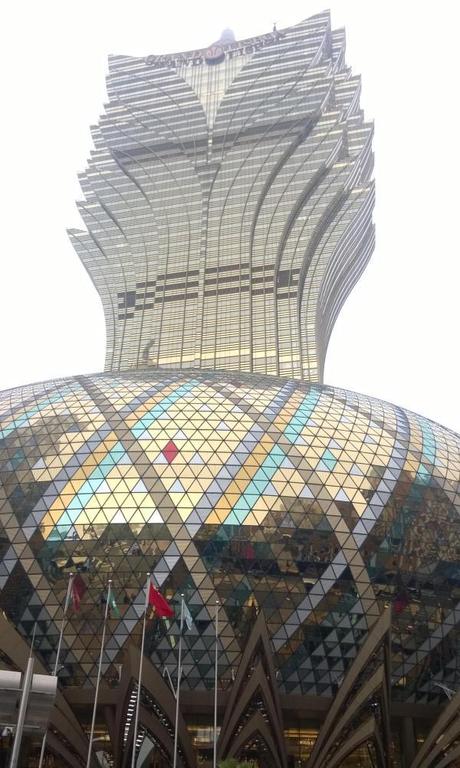
Showy and flamboyant, the exaggerated hotel Grand Lisboa appears even tacky.
To sum up: even if only for photographying the ostentatious and kitsch hotel Grand Lisboa; for beholding the fine ruins of San Pablo on the slope of a hill overlooking the city, in whose summit was erected the defensive fortress; for strolling along its narrow streets with names both in Portuguese and Chinese, or for experiencing the contrast between such two different cultures, Macau is well worth a visit for the traveler who happens to be in this part of Asia.
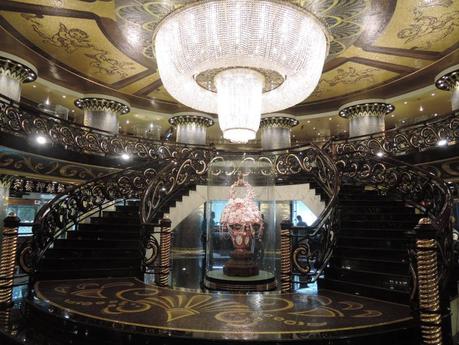
Hotel Lisboa’s baroc and ostentatious hall (not to be mistaken with Grand Lisboa).

